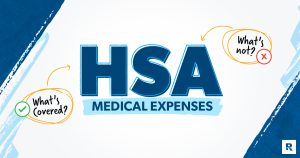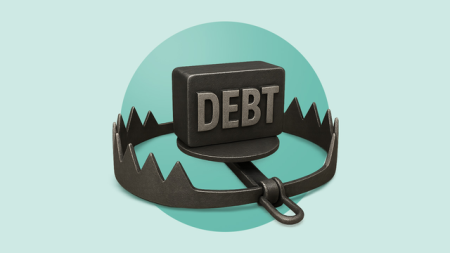Key takeaways
- Typically, debt collection agencies won’t contact you until once your payment is at least 30 days past due, but it often takes longer.
- Legitimate debt collectors will send you a debt validation letter within five days of first contact.
- By law, collection agencies are prohibited from harassing or deceiving consumers.
- Select the debt repayment option that works best for you and your budget.
It’s not uncommon for Americans to have debt. Credit card debt alone increased to a total of $1.21 trillion for American consumers in Q4 2024.
Having debt isn’t always bad, but when you don’t pay your debts on time, they can go to debt collection. Failing to pay a debt in collection can lead to legal action and impact your credit. If you have unpaid debts handled by a collection agency, know the process so you can take care of them as soon as possible.
What is debt collection?
Debt collection is the process an agency or company undertakes to collect money owed by borrowers. Typically, a bill is significantly late before it goes to a debt collector.
Types of debt that collection agencies may attempt to collect include:
- Car/auto loan debt
- Credit card debt
- Medical debt
- Personal loan debt
- Student loan debt
- Unpaid utility and phone bills
A debt collection agency may also contact you if you co-signed on a loan that has become delinquent or if you’re an authorized user on someone else’s credit card and they have neglected their payments.
How the debt collection process works
Most debt collectors follow a similar process when trying to collect a debt.
1. Debt collector contacts the debtor
If you have unpaid past-due debt, your original creditor will typically contact you first.
For example, if you have an old student loan you stopped paying, your lender will attempt to contact you to bring the account current. If those attempts are unsuccessful, the creditor may send the debt to a collection agency.
2. You get a debt validation letter
By law, the debt collection agency must send you a written notice called a debt validation letter within five days of its first attempt to contact you. The letter must include how much you owe, the name of your original creditor and a statement of your right to dispute the debt.
3. Debt collector makes every attempt to collect the debt
Debt collection agencies and debt collectors will contact you with the information on file. That may include your current or previous address, phone number and even your relatives’ contact information to reach you.
Debt collectors may also use personal banking information, including savings and investment accounts, to assess your ability to repay the debt. Some states allow wage garnishment to collect eligible debts.
Your debt collection rights
The Fair Debt Collection Practices Act (FDCPA) is a federal law designed to protect consumers from predatory debt collection practices. It does not apply to business debt. The act prohibits collectors from using abusive or deceptive tactics to collect outstanding debt.
Some of the protections that the FDCPA offers consumers, according to the Consumer Financial Protection Bureau (CFPB) include:
- Debt collectors may not contact you at an unusual time or place or when/where you cannot receive personal communications. For example, an agency must not call you at work if you report that you cannot take personal calls. In addition, generally, debt collectors are prohibited from calling consumers before 8 a.m. or after 9 p.m.
- Debt collectors may not publicly contact you about your outstanding debt on social media. However, they can send you private messages unless you request they stop.
- Debt collectors are prohibited from harassing consumers.
- If you seek attorney representation in dealing with the debt, the agency must stop contacting you and contact the attorney instead. However, you must give the agency your attorney’s name and contact information.
If you’re experiencing harmful practices by a debt collector or someone claiming that they’re attempting to collect a debt, you can contact government agencies to report them:
You can also sue a debt collector under the FDCPA for deceptive practices. If you win in federal court, the debt collector will pay your attorney fees and possibly damages.
Bankrate insight: As of February 2025, the Trump administration halted activities of the CFPB. The agency may not be able to respond to complaints until it is allowed to resume activity.
How collections affect your credit
An unpaid debt in collections can majorly impact your credit score. If you have a delinquent account, your creditor can report it to credit bureaus, resulting in a drop in your credit score. The later your payment is, the worse it will affect your credit.
Collections can stay on your credit report for up to seven years from the first delinquent date. The impacts of this account should lessen with time. After seven years, the account should fall off of your credit report. If it doesn’t, you can file a dispute with the credit bureau to have it removed.
However, there are some instances when debt collections will not impact your credit score. The country’s three credit bureaus recently announced changes to medical debt reporting procedures.
Medical collection debt that has been paid off will no longer appear on your credit report. That means if you had a medical bill forwarded to a collection agency and appeared on your credit profile, it would be removed as long as you’ve paid it off.
Additionally, there is a longer grace period before unpaid medical collection debt will be added to your report. The timeline has been increased from six months to one year. The credit bureaus also announced that medical collection debt of $500 or less will no longer appear on credit reports.
(Note: These new procedures were set to go into effect on March 1, 2025, but the Trump administration has put them on hold.)
Steps to take when a collector contacts you
If a debt collector has contacted you, you may feel stressed and anxious. Luckily, there is assistance available to help you navigate the collection process.
According to Brian Lavin, a consumer finance professional who has worked for the Consumer Financial Protection Bureau since 2014, the best first step is to review the CFPB’s debt collection help resource. The CFPB offers plenty of information for consumers in the collection process.
Practical steps to take are:
- Confirm that the debt is yours. The FDCPA requires debt collection agencies to send you a debt validation letter before you pay anything. This is a crucial step in the process because it confirms if the debt does belong to you. A debt validation letter will also outline how much is owed, the type of debt owed, details about the creditor and other important information. You have 30 days to dispute any errors.
- Explore your payment options. When paying your debt, you’ll typically have two repayment options. You can pay off your balance in a lump sum or with a repayment plan. The best option for you will depend on your budget and how much you owe. Before deciding on a plan, calculate how much you can reasonably put down. You may be able to negotiate a repayment plan for less than what you owe, or you may choose to work with a credit counselor or go on a debt management plan.
- Begin making payments. Before making any payments, contact your debt collector and ask for a written agreement. Once you’ve received the agreement and have carefully reviewed the information for accuracy, you can start making payments. After you’ve made your first payment, reach out to the collector to make sure that it was received, then document every payment for your future records.
The bottom line
The debt collection process is a legal way for creditors and collection agencies to collect money that’s owed to them. The best way to avoid dealing with a collection agency is to always make your credit card and other debt payments on time.
Setting up a direct automatic payment system can help ensure that your payments are never late. However, if you have any changes to your financial account — such as a new credit card number — it’s important to update the information as quickly as possible. That way, you can avoid missing any payments.
If a debt collector contacts you, know that federal law prohibits them from harassing or deceiving you. If you believe you are the victim of unlawful collection behavior, contact your state attorney general or the CFPB immediately to file a complaint.
Frequently asked questions
Read the full article here









